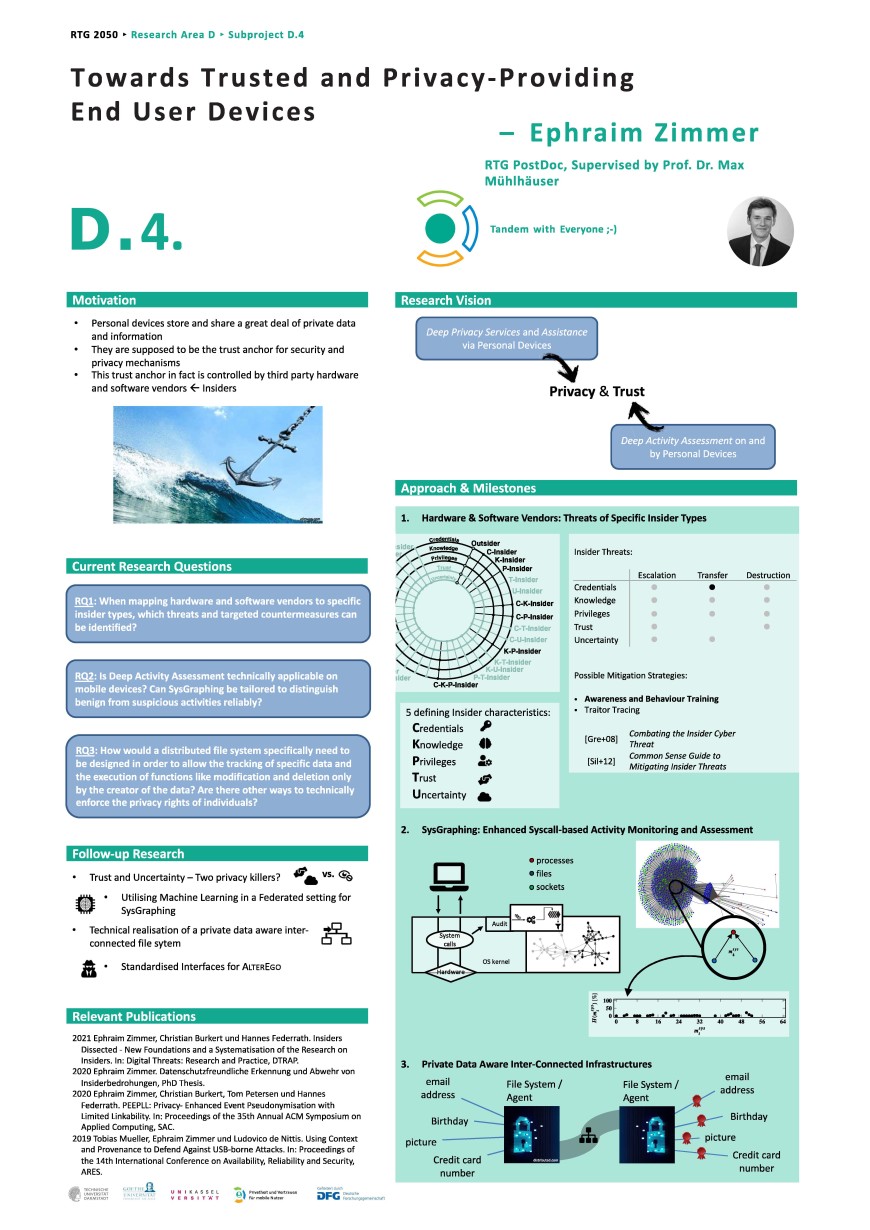In Phase I, D.4 contributed to a socio-technically founded layer-oriented middleware, with which users can upgrade their end device towards an AlterEgo. In the course of refocusing for phase II, this goal is uphold on federations of components in flexible networks. Federated architectures are seen as a three-stage recursive construct. At the middle stage 2, the devices of a user are federated (smartphones, smartwatches, tablets, etc.). The whole federation represents an alter-ego that cooperatively ensures privacy protection and trust evaluation of user. At stage 1, each device in turn is understood as a federation of components, where the components are federated according to context, desired functionality, etc. At stage 3, sets of user-specific alter-ego federations (from stage 2) are combined into federations that represent a whole set of users. Such federations provide technical support to digital collectives with respect to common privacy and trust-related goals. In D.4, four basic approaches are envisioned: (1) Multi-layered component/federation model for AlterEgo; (2) socio-technical foundation; (3) software-based user assistance; (4) flexible integration of privacy and trust-related mechanisms.
Current PhD project of subarea D.4:
Towards Trusted and Privacy-Providing End User Devices
-Ephraim Zimmer-
The AlterEgo is a trustworthy digital representative of its user. It enforces the interests of the user with regard to trustworthiness assessment and privacy protection against other parties in the network. The areas in which the AlterEgo is to be used encompass any kind of (digital) functionalities and services that the user consumes.
| Name | Working area(s) | Contact | |
|---|---|---|---|

| Prof. Dr. Max Mühlhäuser | B2, D4 | max@tk.tu-... +49 6151 16-23200 S2|02 A114 |

| Dr. Ephraim Zimmer | D.4, Tandem D.2, D.5 | zimmer@privacy-trust.tu-... +49 6151 16-23191 S2|02 A105 |




